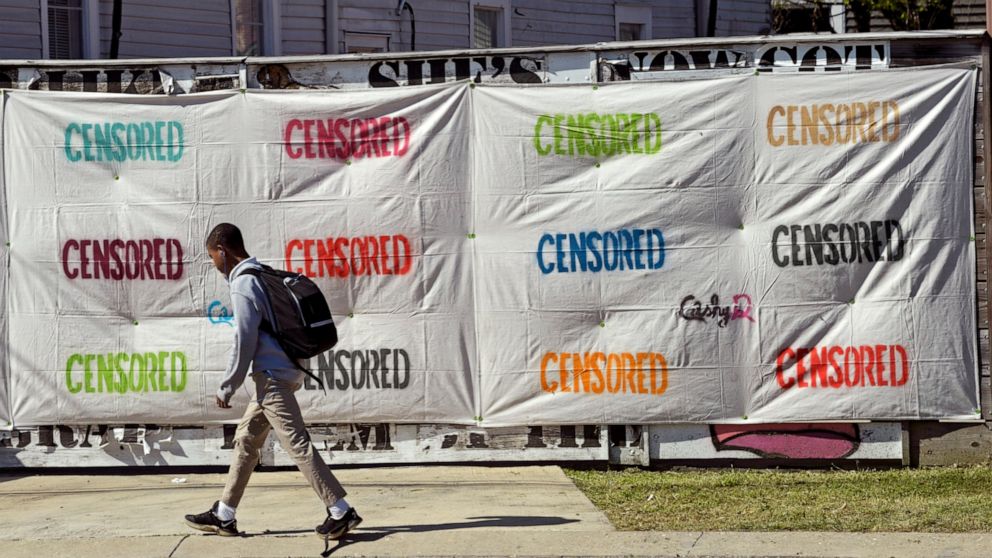
New Orleans cannot make a landowner take down a mural of infamous quotes recorded when Donald Trump was on “Access Hollywood” in 2005 because the city’s mural regulations violate freedom of speech, a federal judge ruled Tuesday.
Judge Martin Feldman ruled the day after he heard arguments about landowner Neal Morris’ assertion that the regulations are unconstitutional and the city should be barred from enforcing them.
“It’s a victory for the First Amendment and for artistic expression. The city had no business deciding what is and isn’t art,” said Bruce Hamilton, who represented Morris as an attorney for the American Civil Liberties Union of Louisiana.
In large capital letters with cartoons replacing four words, the mural painted on a fence transcribes part of the future president’s recorded conversation, including a comment about a woman’s breasts and his boast about grabbing women’s genitals. It starts with, “I moved on her like a bitch,” with a cartoon dog in place of the word.
The mural has been covered since the city served Morris with a notice about the regulations, first with a canvas sheet with the word “censored” repeated in bright colors, then with a plain canvas sheet.
Morris is currently in Oregon, Hamilton said. He said he had left Morris a voicemail and had emailed the 31-page ruling to him.
Mayor LaToya Cantrell’s press secretary, LaTonya Norton, did not immediately return an after-hours call to her cellphone for comment.
The regulations required landowners to submit a sketch of the proposed mural. Feldman rejected arguments that the city only wanted to tell whether they should be regulated as commercial signs or not.
“Because the City of necessity must determine whether a mural contains commercial speech, and, therefore, should be regulated as a sign, the ordinance is a prohibited free speech enemy,” Feldman wrote in a 31-page opinion.
He also agreed with Hamilton’s argument that the ordinance is unconstitutionally vague.
It uses “indistinct, shapeless and obscure” phrases to define murals, leaving people unable to understand when a permit is required, Feldman wrote.
He also handed down an order against enforcement.
The 5th U.S. Circuit Court of Appeals “has consistently held that the loss of First Amendment freedoms constitutes irreparable injury. … Balanced against this grave threat is the City’s … interest in identifying those commercial messages that may be masquerading as murals,” Feldman wrote.
Hamilton had said Monday that he expected a ruling for Morris. He said Tuesday that he had not expected a ruling this fast.
“I was thinking it’d be anywhere from the end of this week to the end of the summer,” he said.





